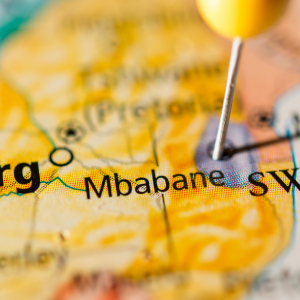
Johannesburg: The Southern Africa Litigation Centre (SALC) expresses its deepest concern at reports from Swaziland that Vincent Ncongwane, the secretary general of the Trade Union Congress of Swaziland (TUCOSWA), was prevented from speaking at a gathering in Matsapha yesterday.
Ncongwane has recently returned from the United States where he attended a civil society meeting held to coincide with the US-Africa Summit hosted by US President Barack Obama, and was due to address yesterday’s gathering on the outcomes of this visit. While he was in Washington, Ncongwane and his colleague, human rights lawyer Sipho Gumedze were the subject of threats made by Swazi Prime Minister Barnabus Sibusiso Dlamini that the activists should be strangled on their return to Swaziland.
“The Swazi government is clearly angered that representatives of civil society dared speak out about the withdrawal of Swaziland’s eligibility under the American African Growth and Opportunities Act (AGOA)”, said SALC’s executive director Nicole Fritz. “It is distressing, but not surprising, that this now leads the authorities to actively prevent individuals who disagree with the official position from expressing their views.”
Freedom of expression is increasingly under threat in Swaziland, and the authorities have recently cracked down on individuals, journalists, lawyers and activists who criticise official conduct.
“Freedom of expression includes the right to express unpopular opinions, and no Swazi should be hindered in their exercise of this constitutionally protected right,” Fritz said.
SALC calls on the Swazi authorities to ensure that Ncongwane, Gumedze and all other activists in Swaziland are given the space to speak out freely, without fear of repression or reprisal. SALC also urges South Africa, as Swaziland’s neighbor and major trading partner, to increase pressure of Swaziland’s political leaders to respect and promote the right to freedom of expression, and to make any future financial assistance dependent on human rights reforms.



